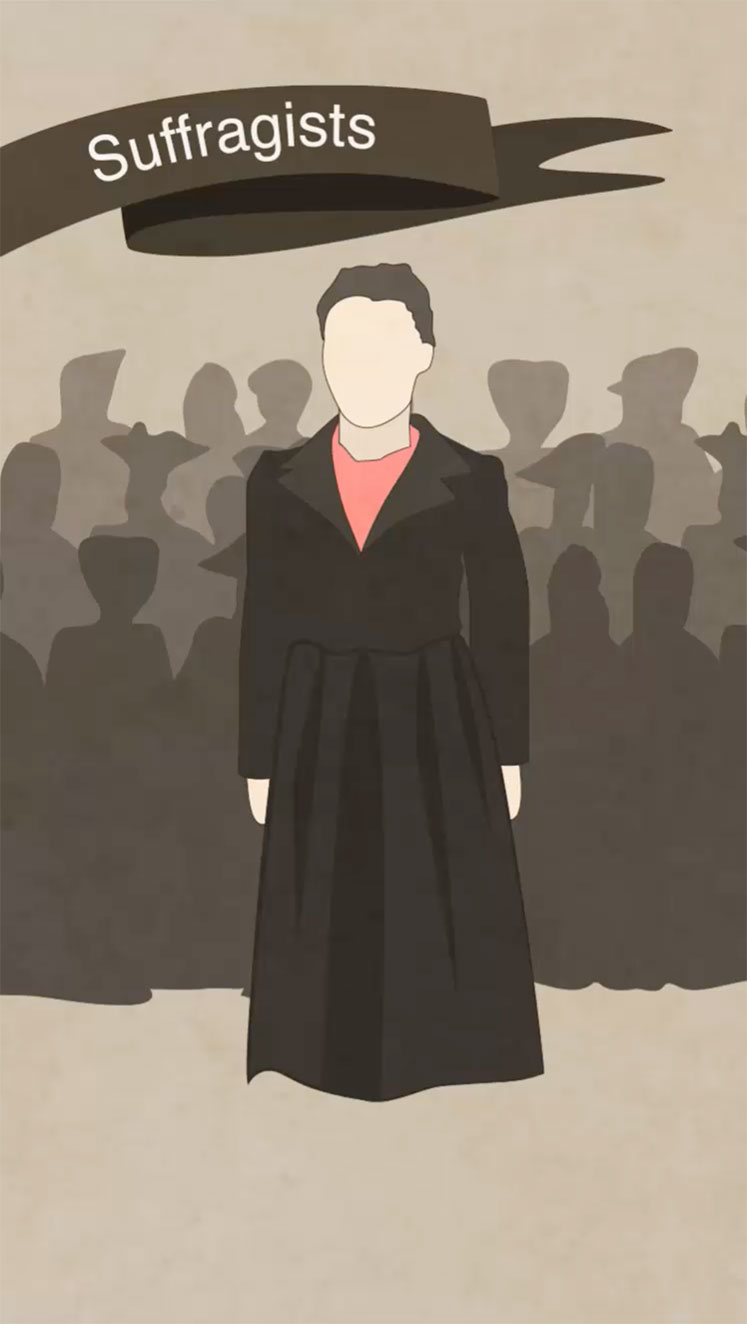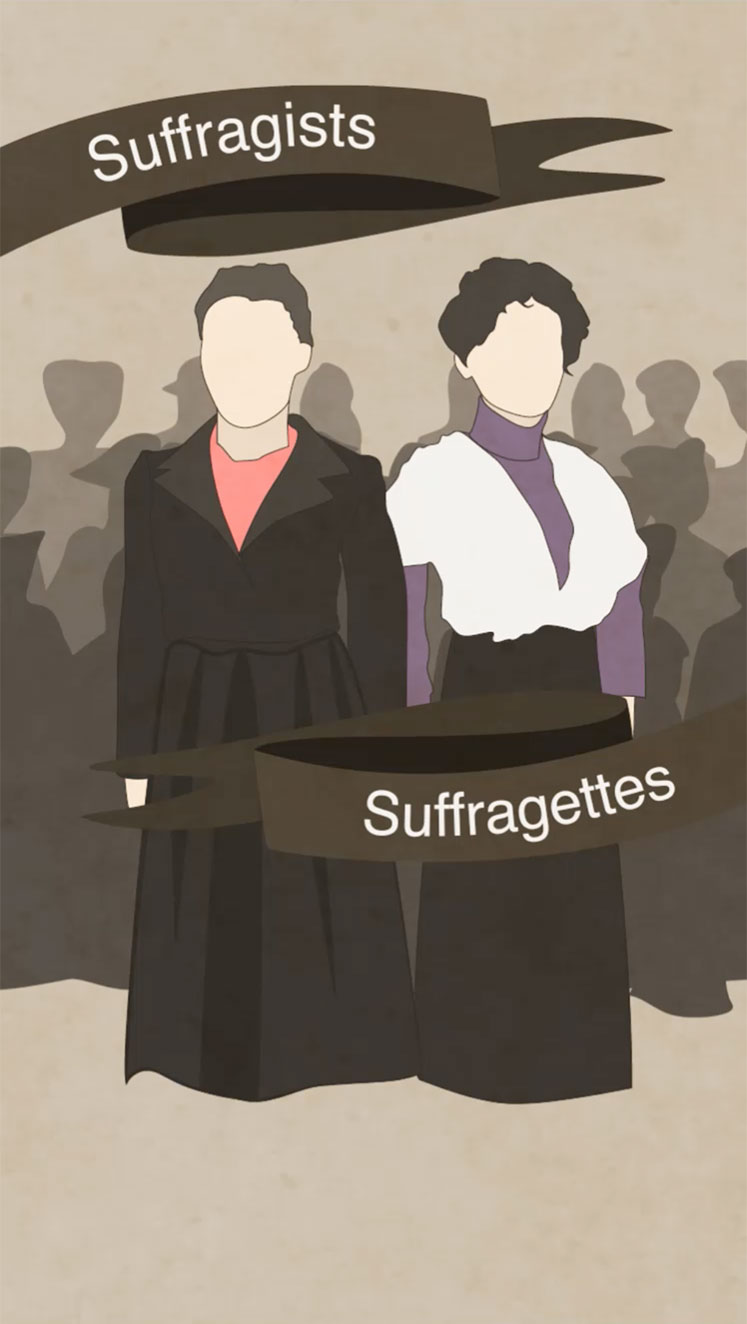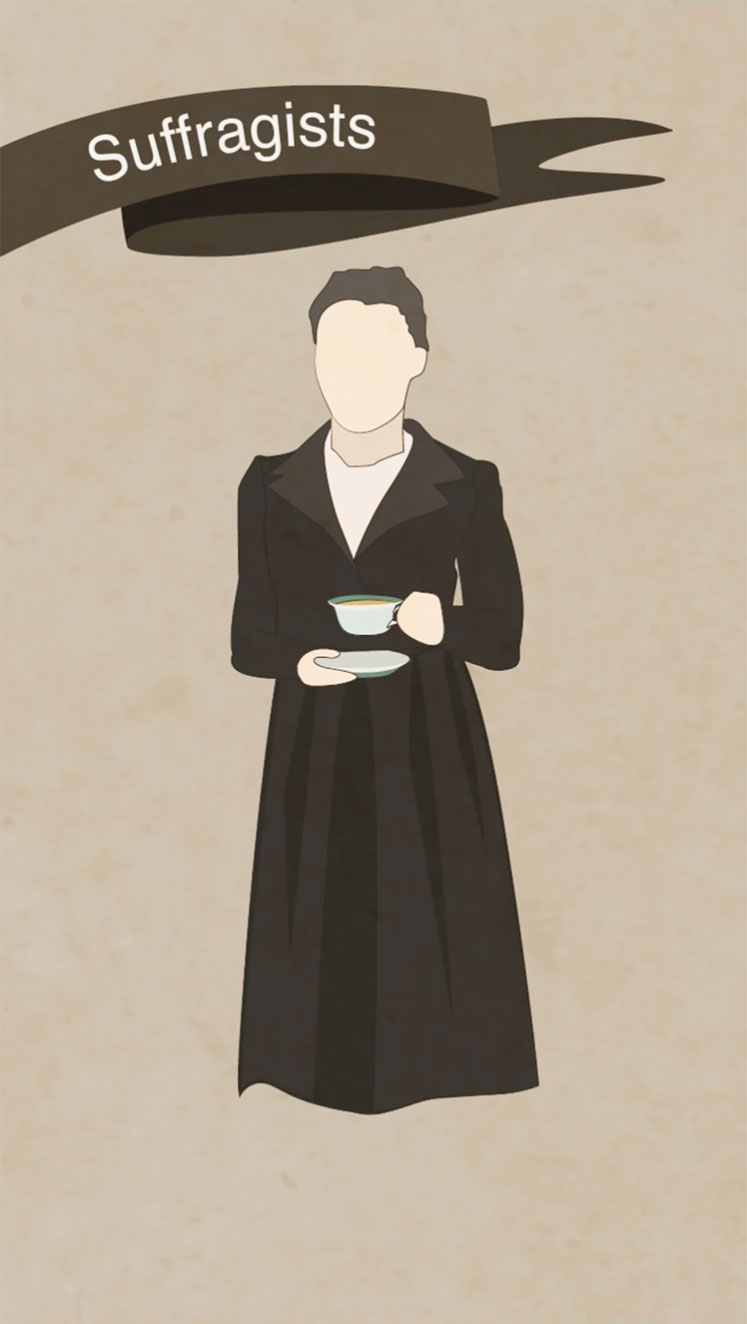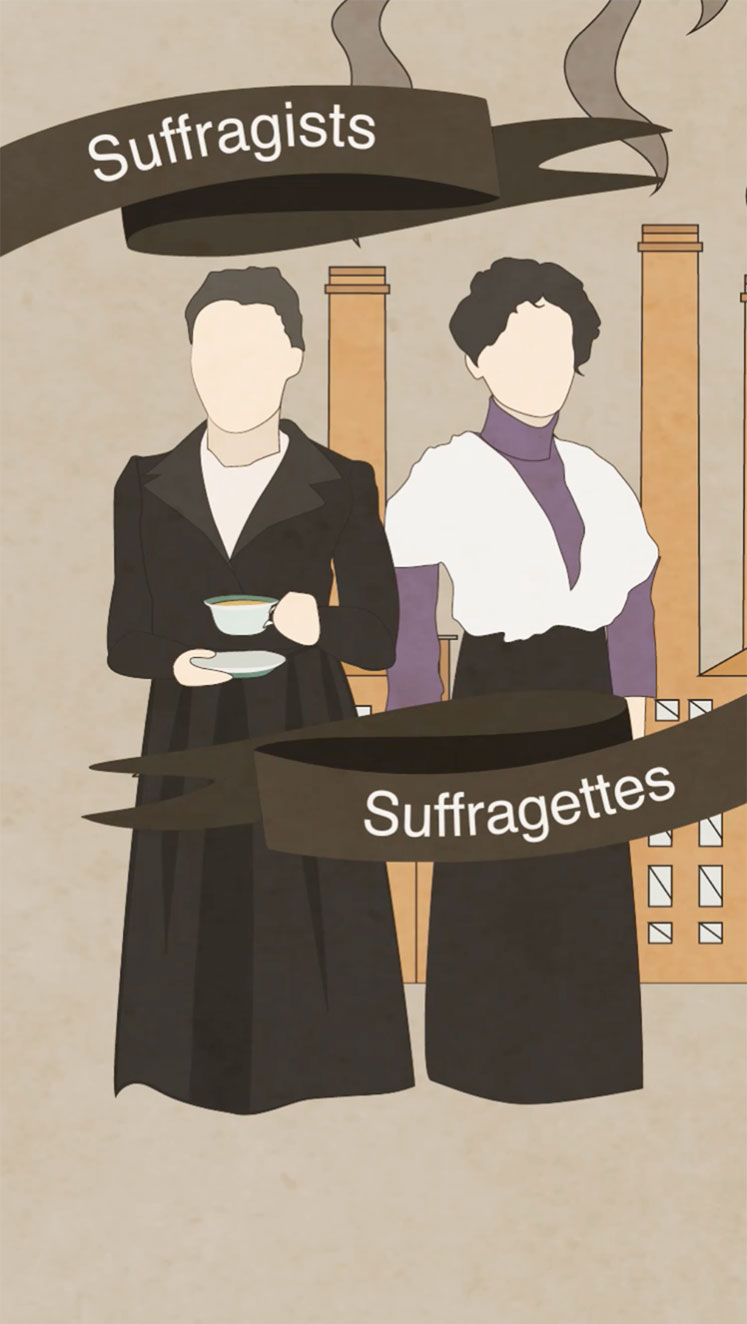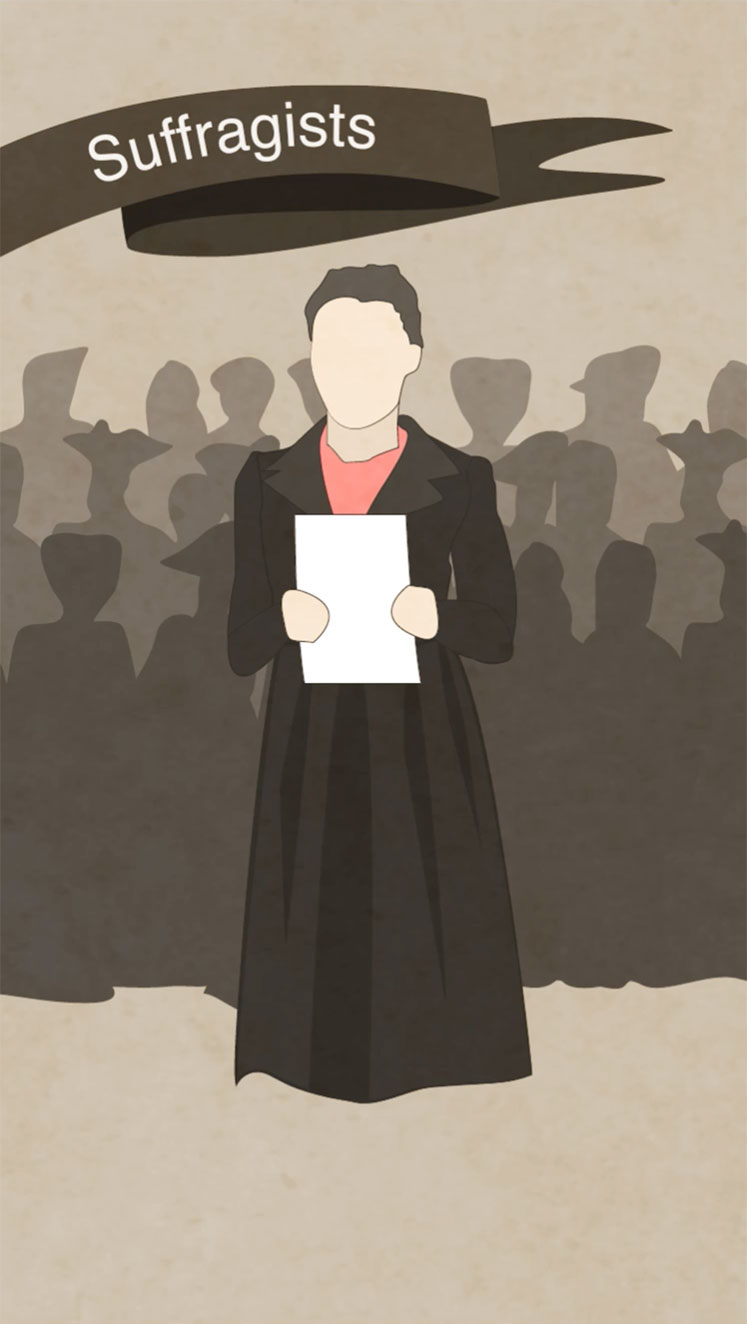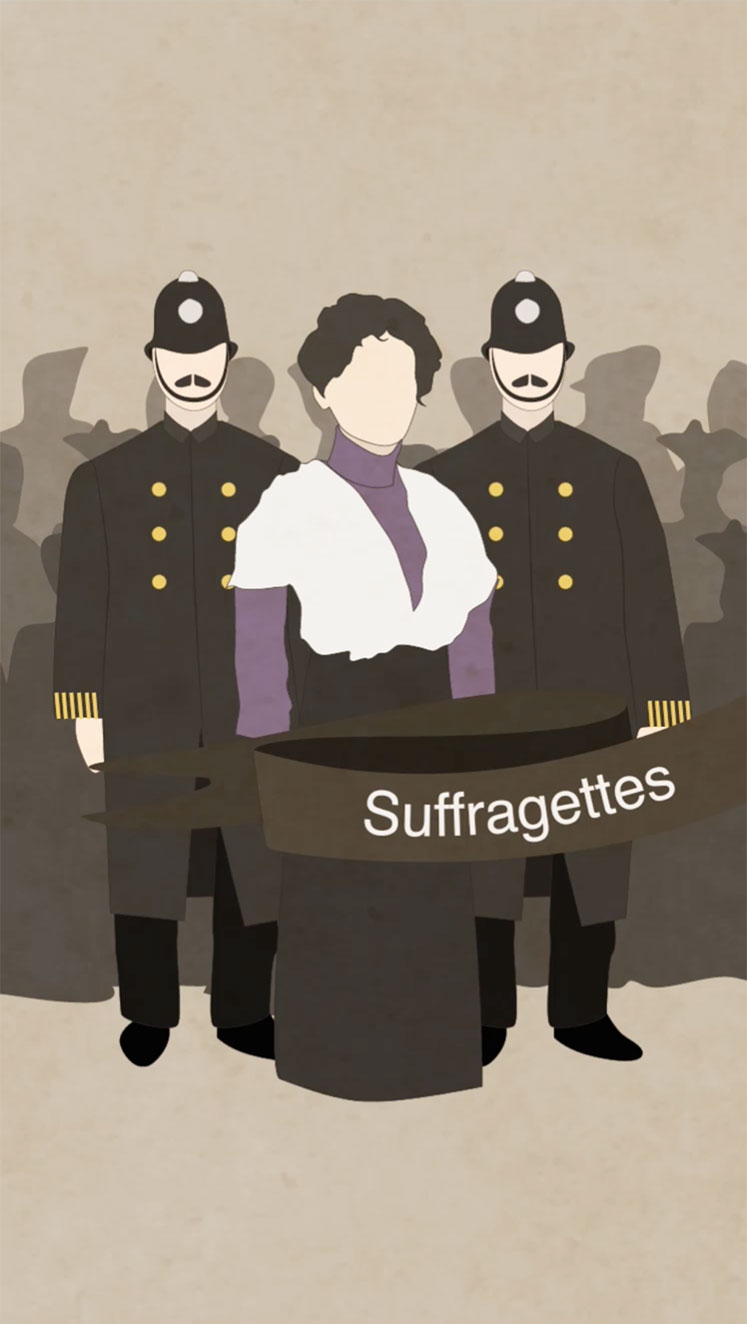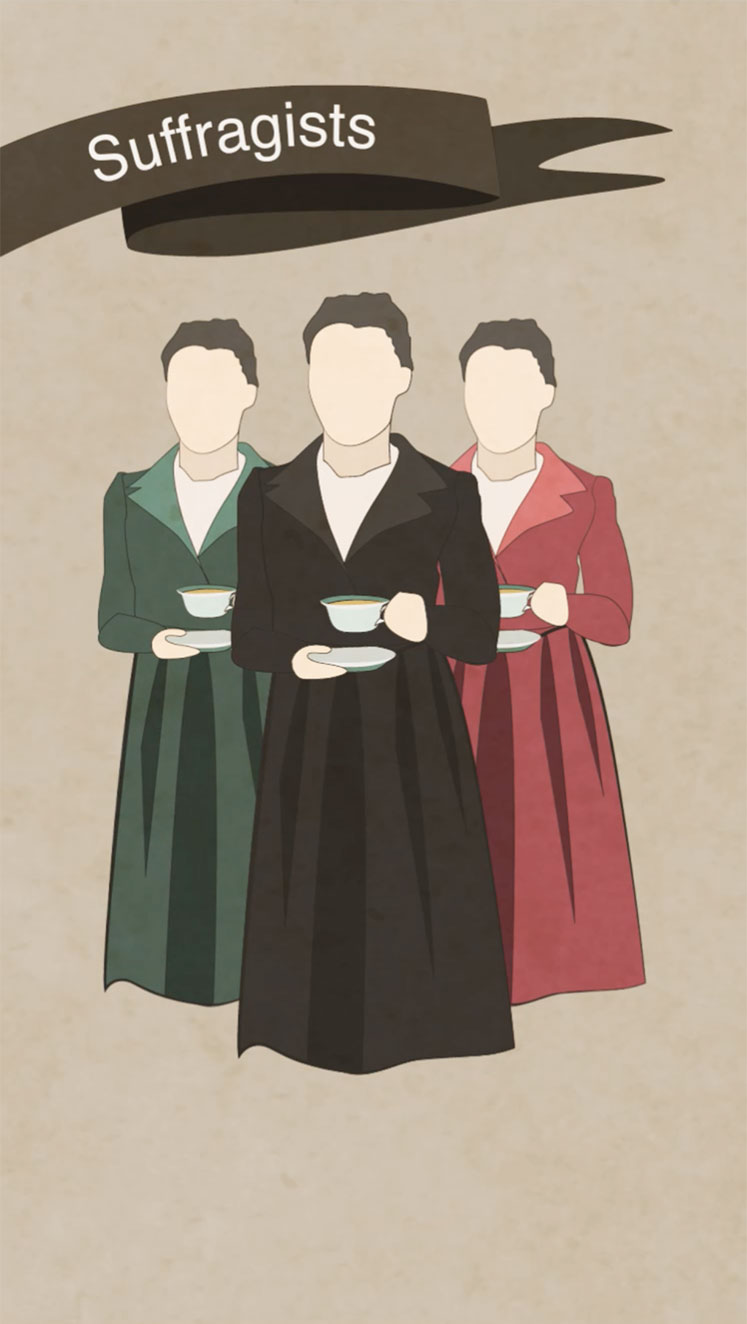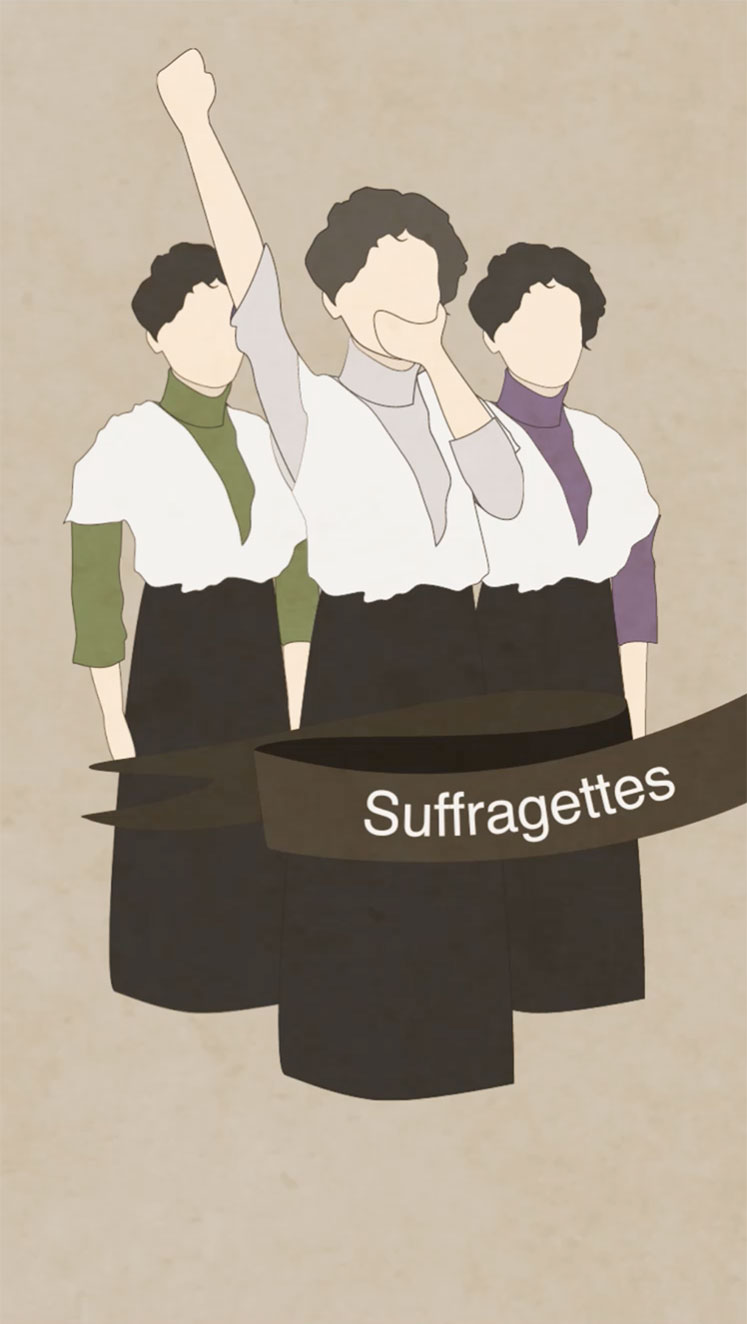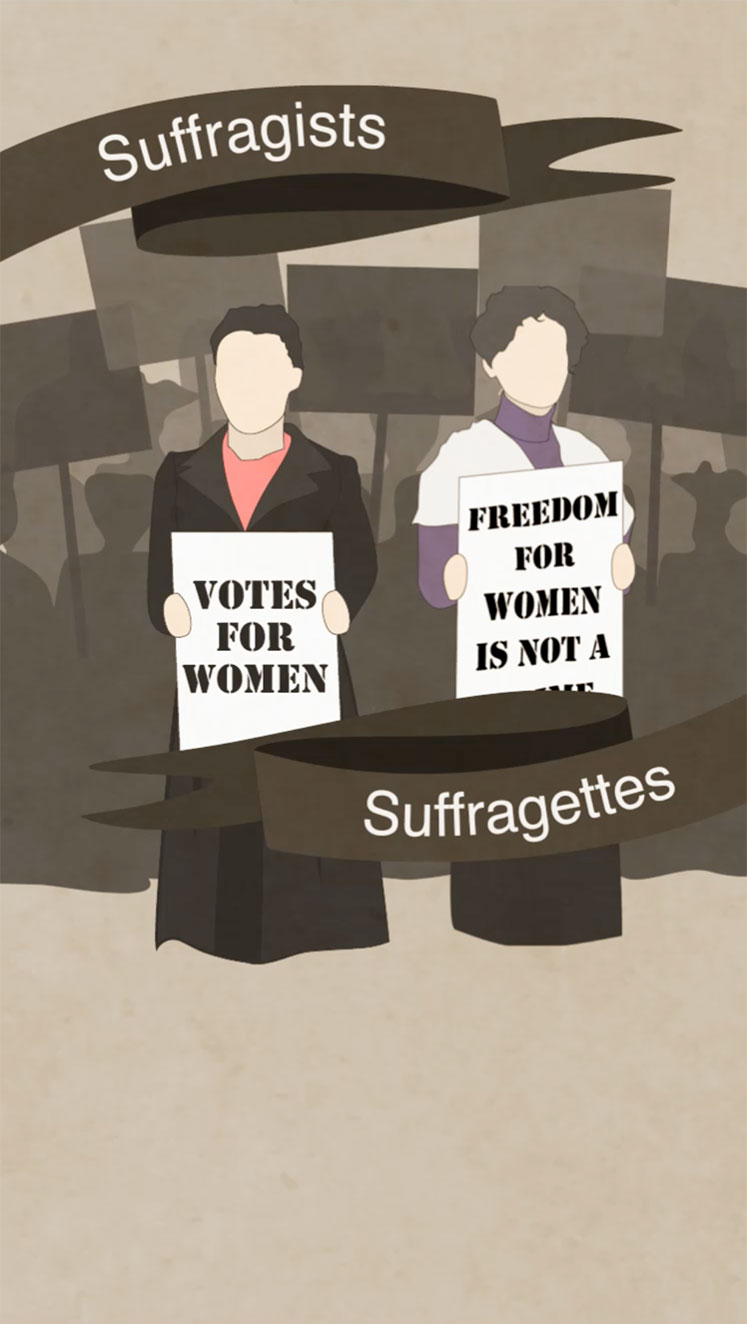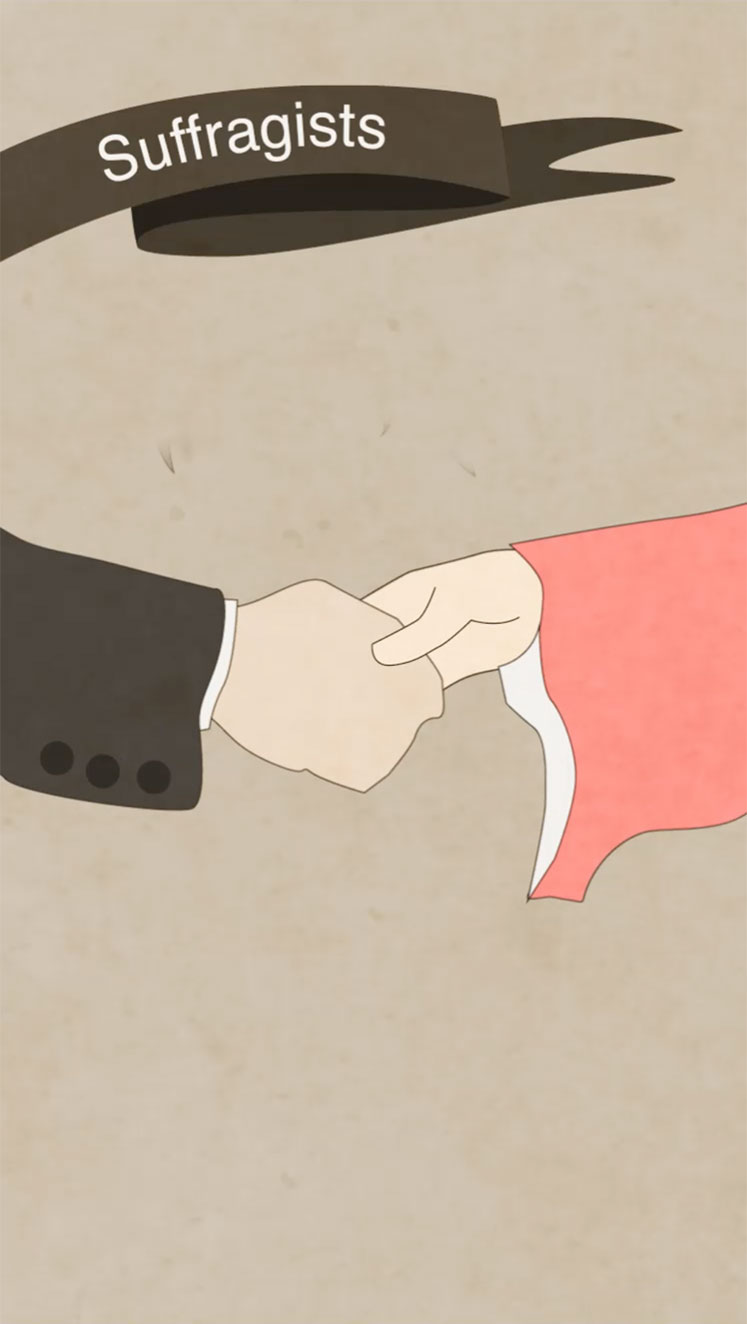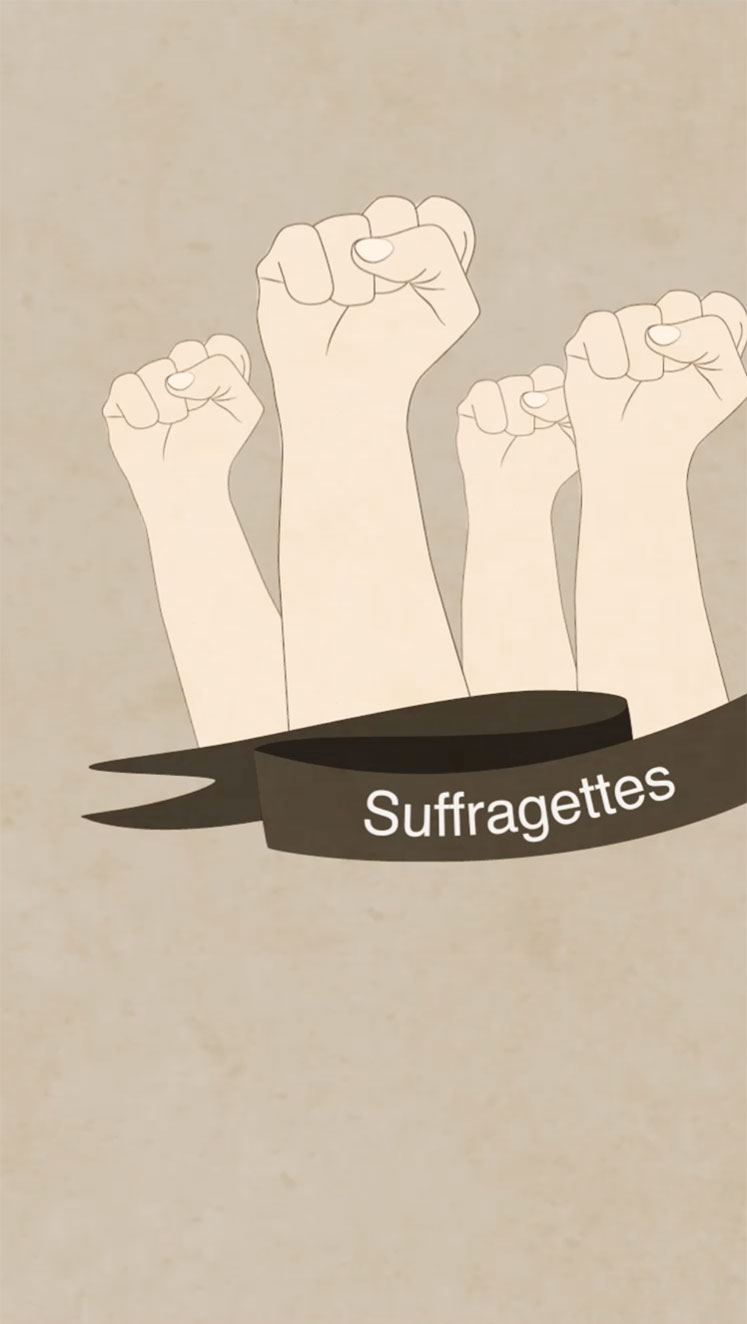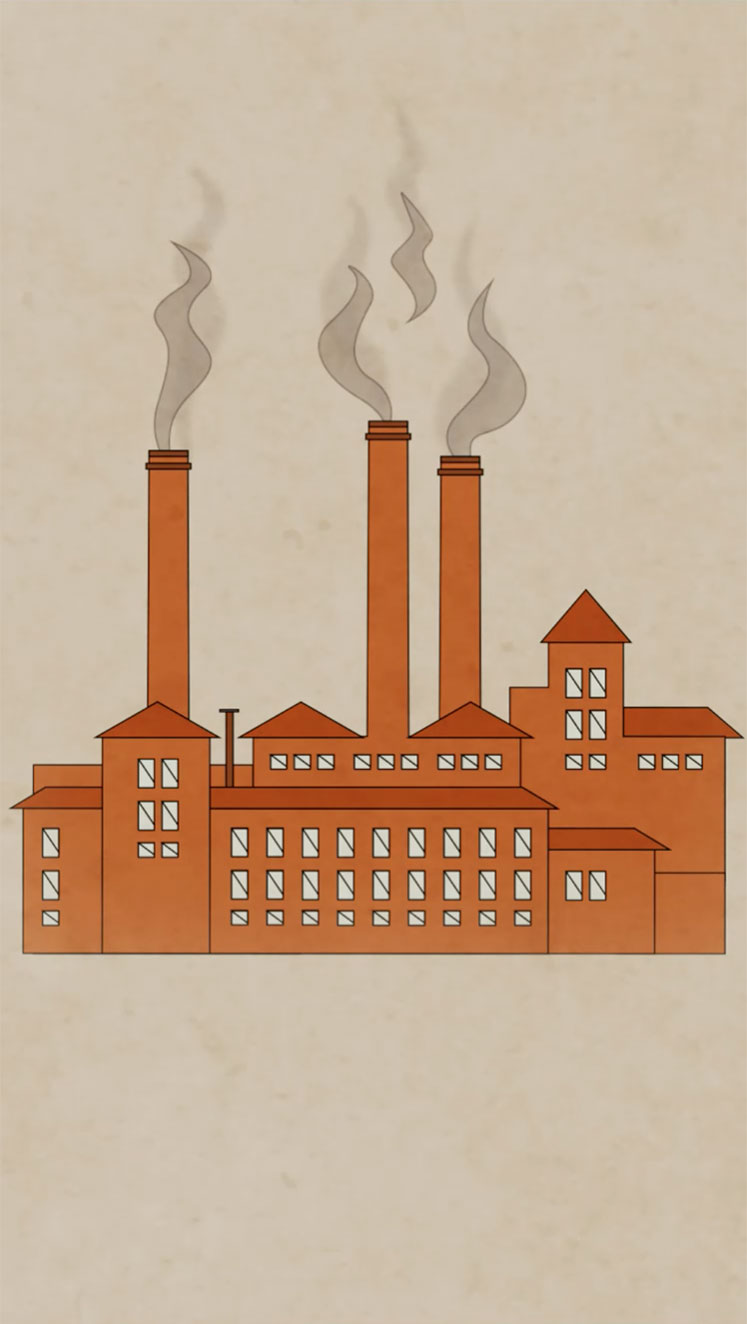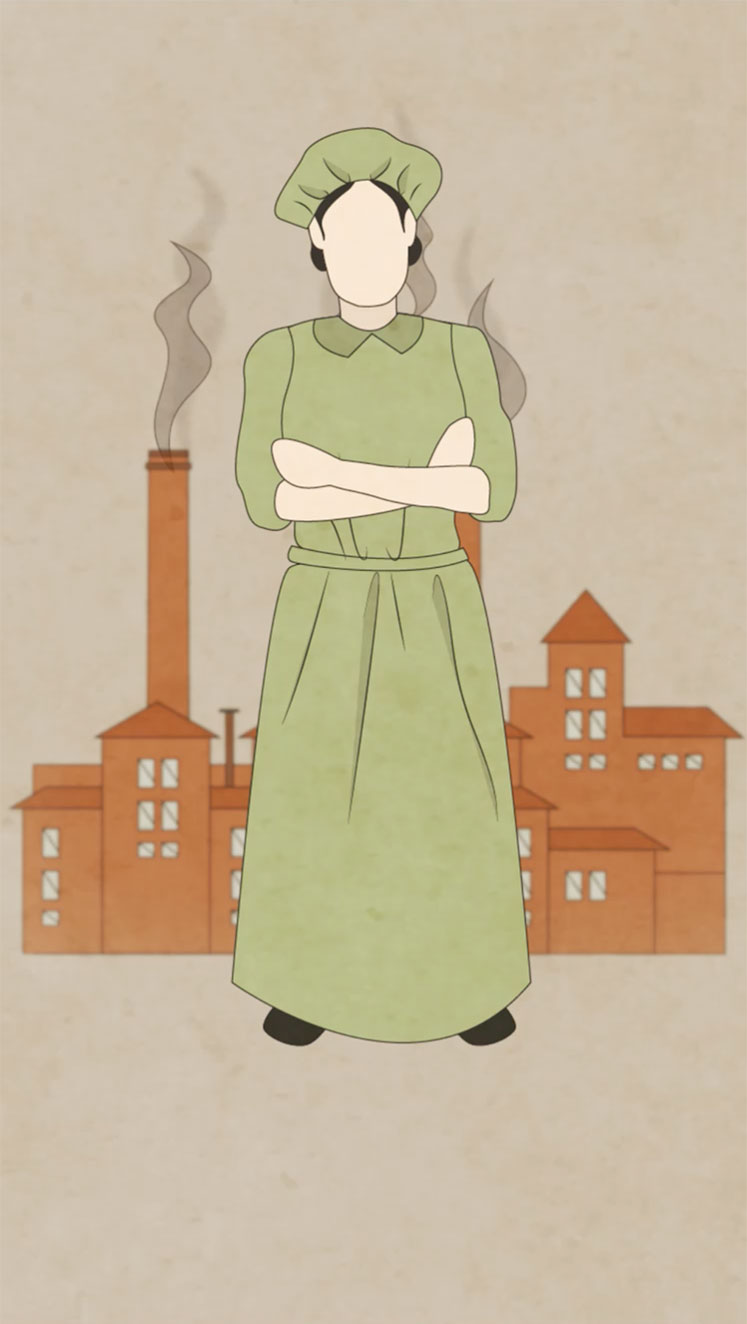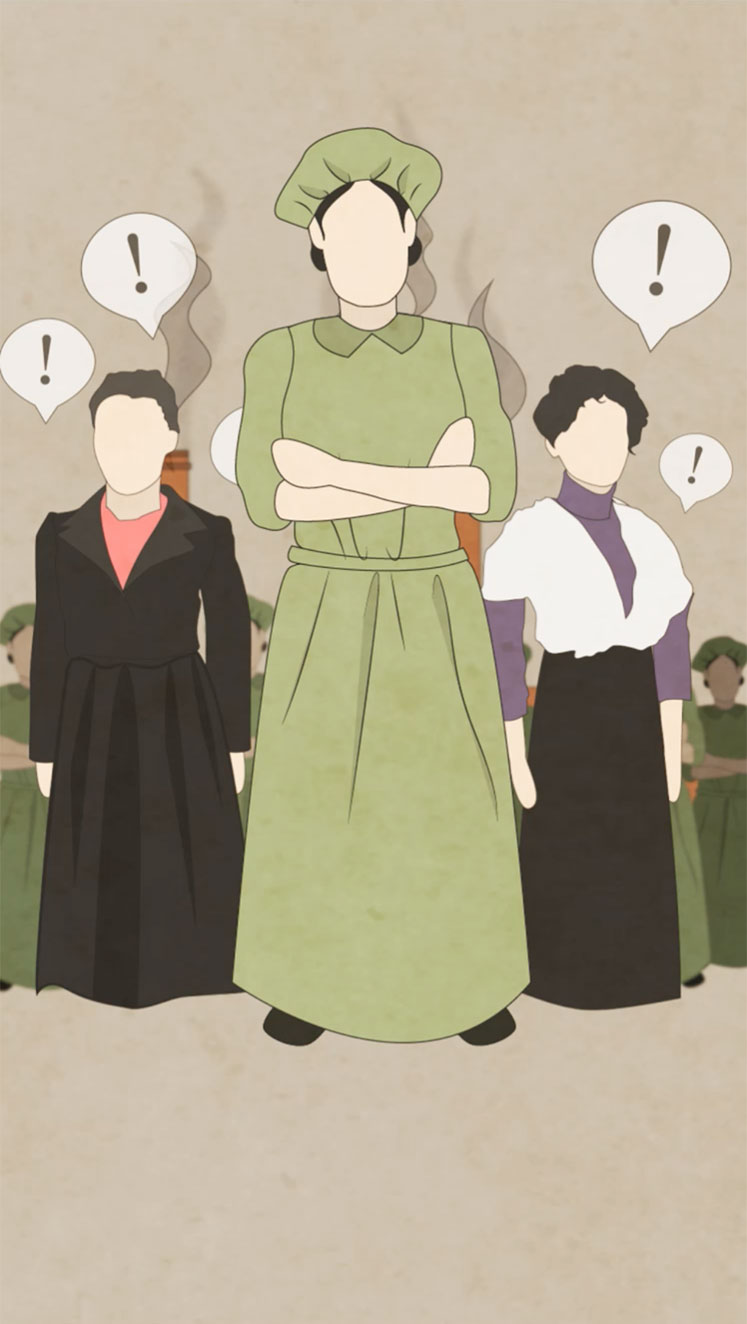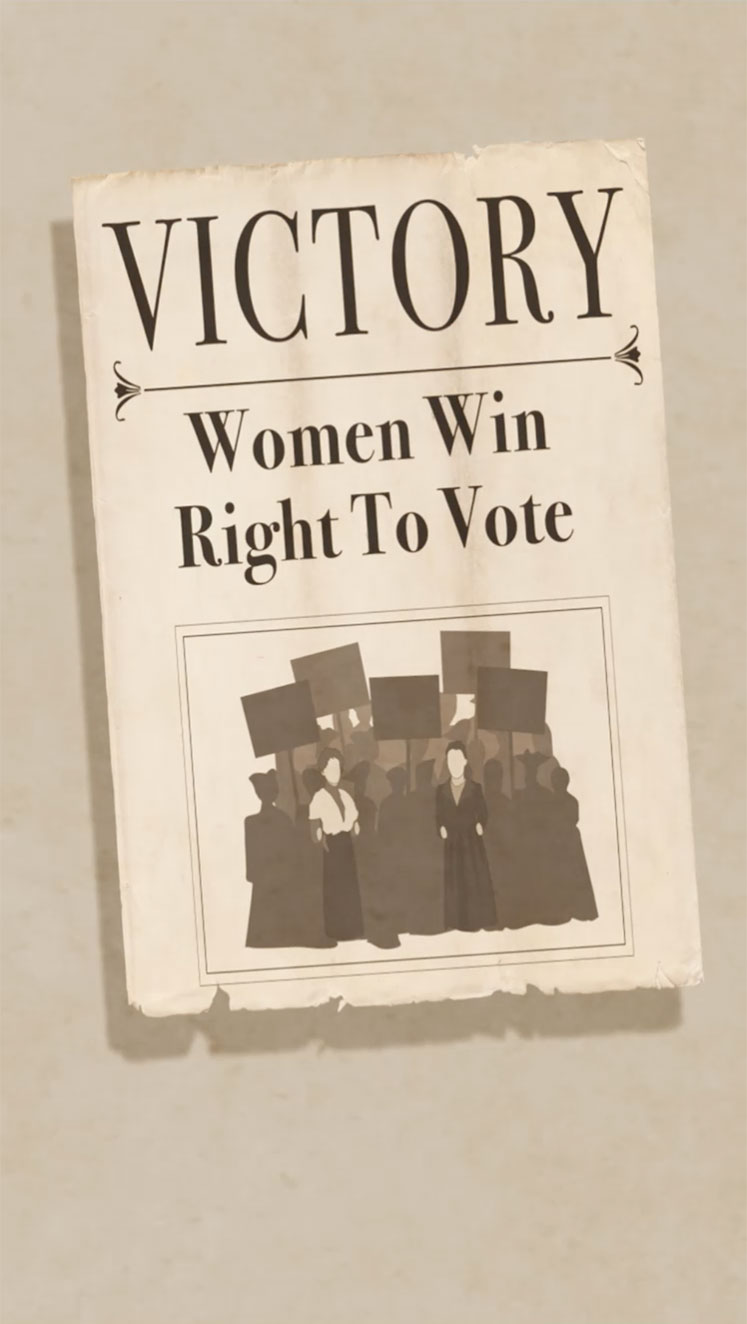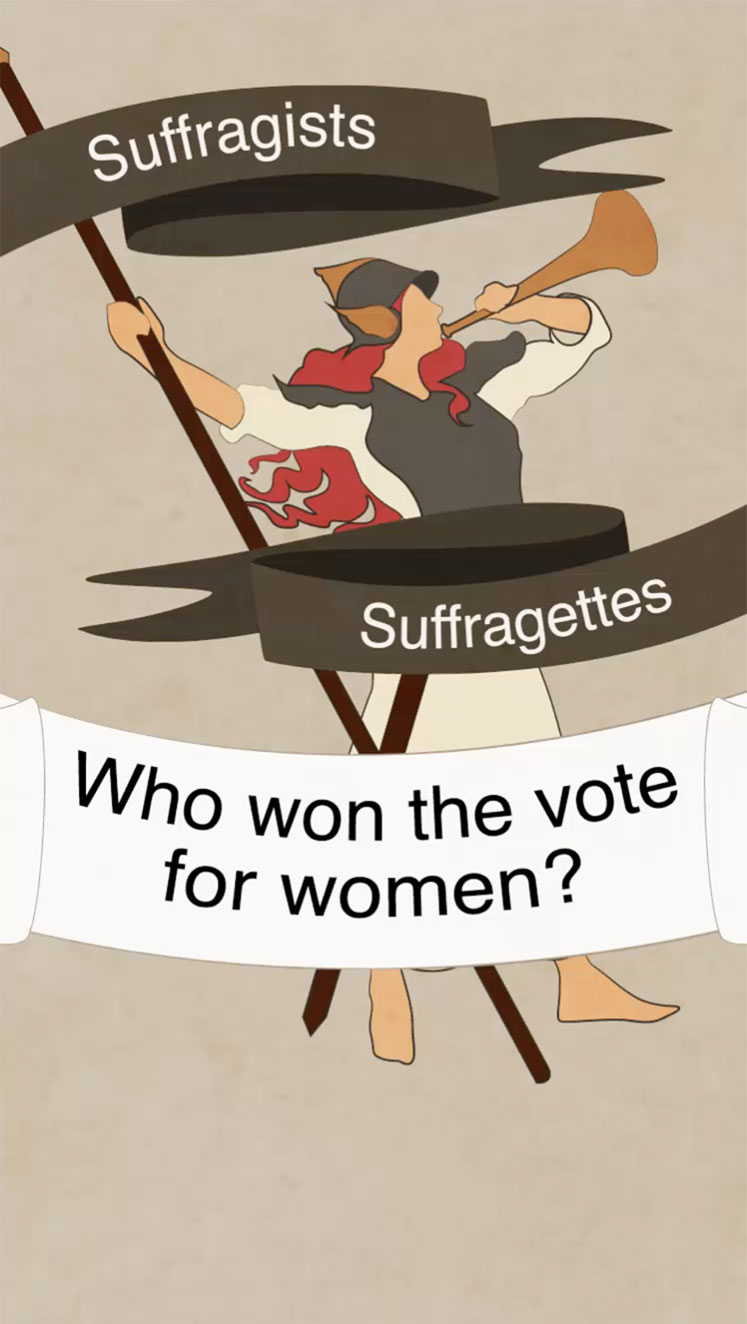100 Women: Does being called Emmeline change your life?
- Published
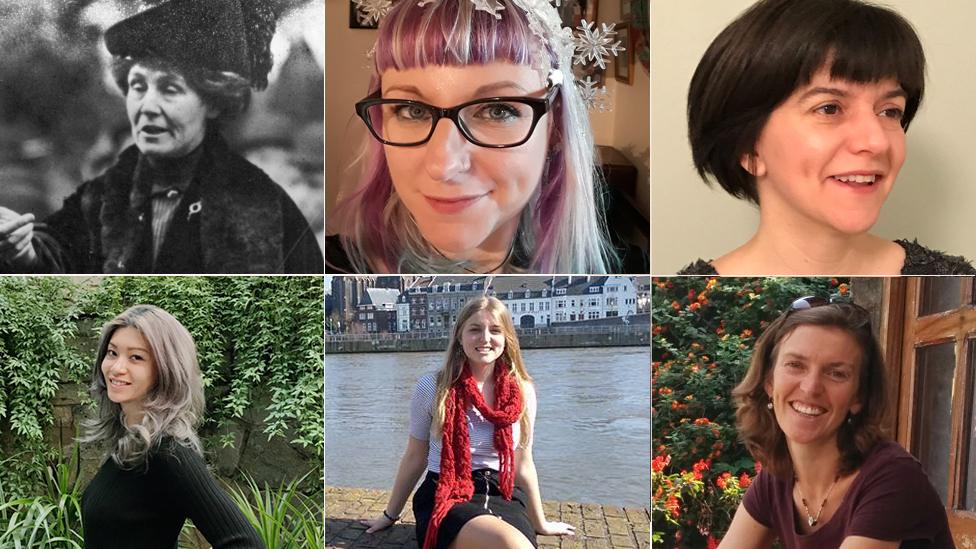
On the centenary of some British women winning the right to vote, 100 Women speaks to six women who share their first name with suffragette leader Emmeline Pankhurst. Spread across the globe, from Kigali to Sao Paulo, they all say their name has made them more inclined to fight for women's rights, even if they weren't originally named after the feminist icon.
Emmeline May, 39, London
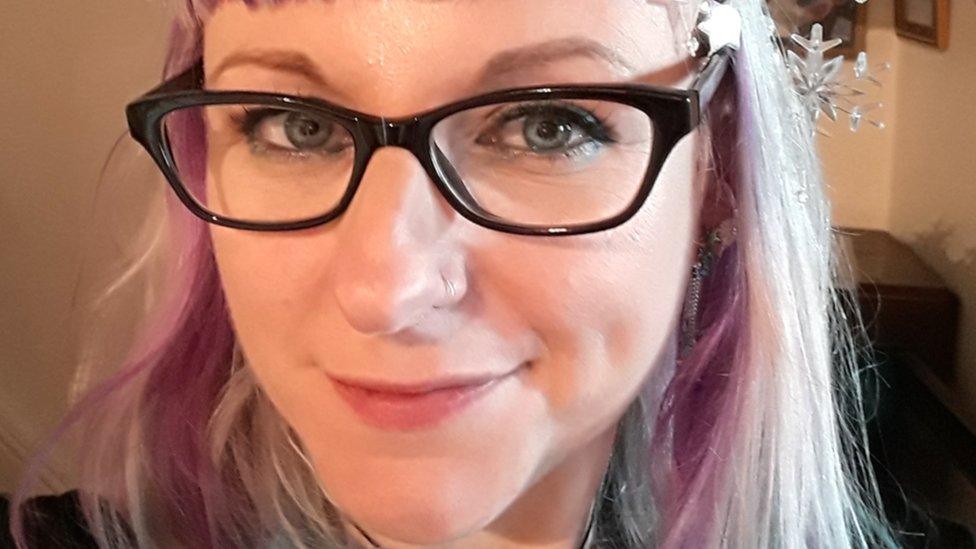
I am 40 this year, so experiencing my own big anniversary, in a way. I remember as a child being very proud of being born on on the 60th anniversary of limited suffrage and the 50th of full suffrage.
I am fairly sure I ended up such a loudmouthed feminist because of my early childhood fascination with Pankhurst and what she represented.
My mum said she'd always hoped that naming me after Pankhurst would produce a strong and powerful person. I wasn't a child that was afraid to have an opinion - even when I was little I would challenge my mum's friends if they said things that I didn't think were OK.
Kids like seeing their names in books so every time I saw a reference to Pankhurst I got excited - it's not really taught as part of our history syllabus. And whilst I hated it as an awkward early teenager because it made me different, it made me aware of the responsibility that Emmelines have to be a force for good.
I started a blog in 2014 to document my journey in giving up drinking, but after a while I got bored of writing about alcohol and started writing about feminism and self esteem. "Consent: Not Actually That Complicated" was one of those weekly blogs,, external like many I had written before, but for some reason it caught people's attention, and when I woke up in the morning my little blog had gone viral. It feels amazing to have written something that has started so many conversations about sex and consent.
I am currently doing a history masters degree part-time in gender, sexuality and culture, and realising there is so much more to the women's movement than just the fight for suffrage.
The downside to my name is there's never anything in a gift shop with Emmeline on!
Emmeline Skinner, 43, Kigali
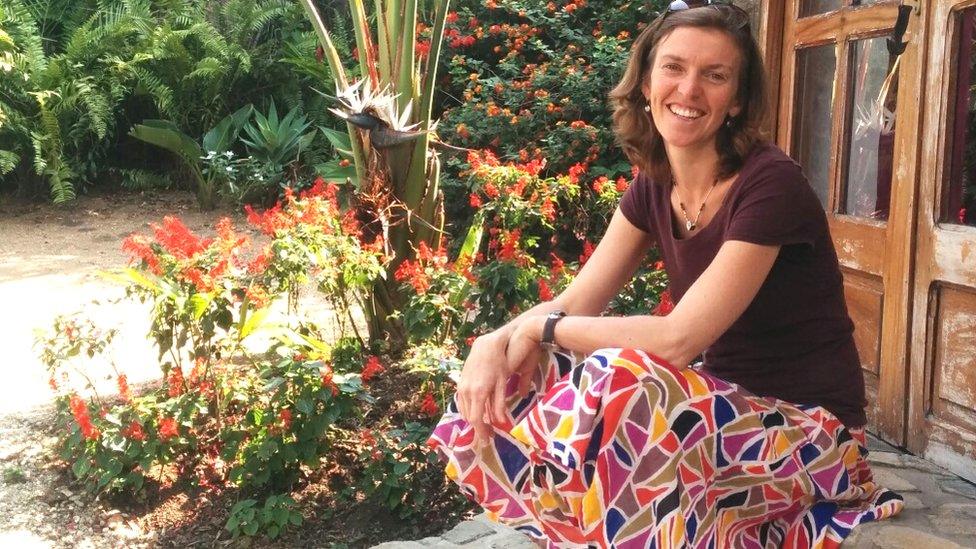
I had a great aunt who was called Emmeline, born around the turn of the century. I've always been very inspired by the name - I like the idea of a feisty female role model who fought for women's rights.
From a young age I always knew about Emmeline Pankhurst and last year for International Women's Day everyone in the office nominated a woman who inspired them for a photo wall and I put Emmeline Pankhurst up as my woman.
I work for Dfid (UK Department for International Development) and have been in Kigali for almost four years, working as a social development adviser. I do a lot of work on gender and equality and women's empowerment.
I don't think anyone in Rwanda knows who Pankhurst is - I think she's very much a figure of British history. Interestingly Rwanda ranks number one on the Gender Representation Index, due to the high proportion of women in parliament - far above the UK.
In Rwanda 62% of parliamentarians are female and there are several powerful female ministers in government, but gender-based violence remains widespread and accepted, and in contrast to the large proportion of female parliamentarians, at the local level only 10% of mayors are women.
Soon I'm being posted to Mozambique to work on an innovative programme empowering adolescent girls and women - where the situation for women is much more challenging, with high rates of child marriage, teenage pregnancy and much weaker female political representation.
I think it's nice to have a name that has a story behind it. I actually named my daughter after Isolde in the story Tristan and Isolde and my son after Prince Caspian by CS Lewis.
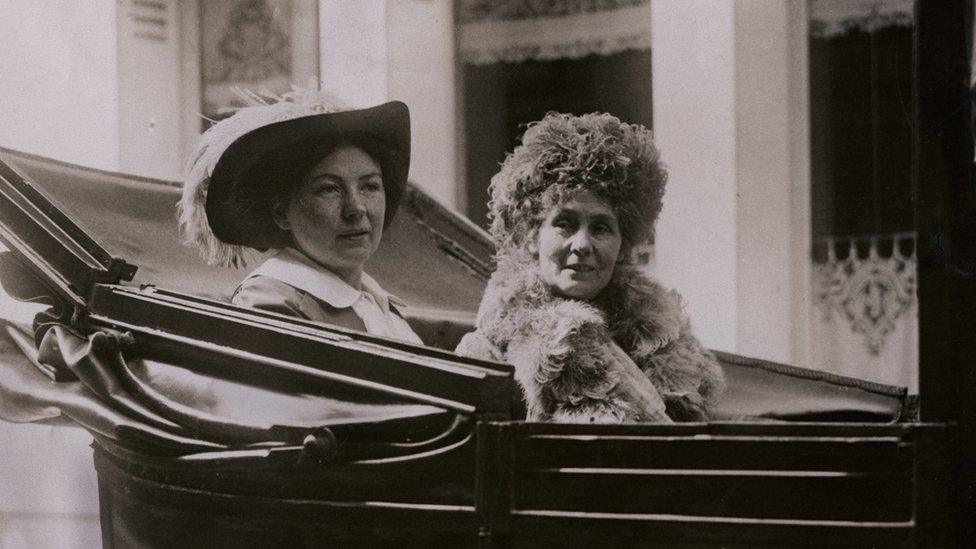
Christabel Pankhurst worked alongside her mother in the campaign to get women the vote
Emmeline Ng, 35, Kuala Lumpur
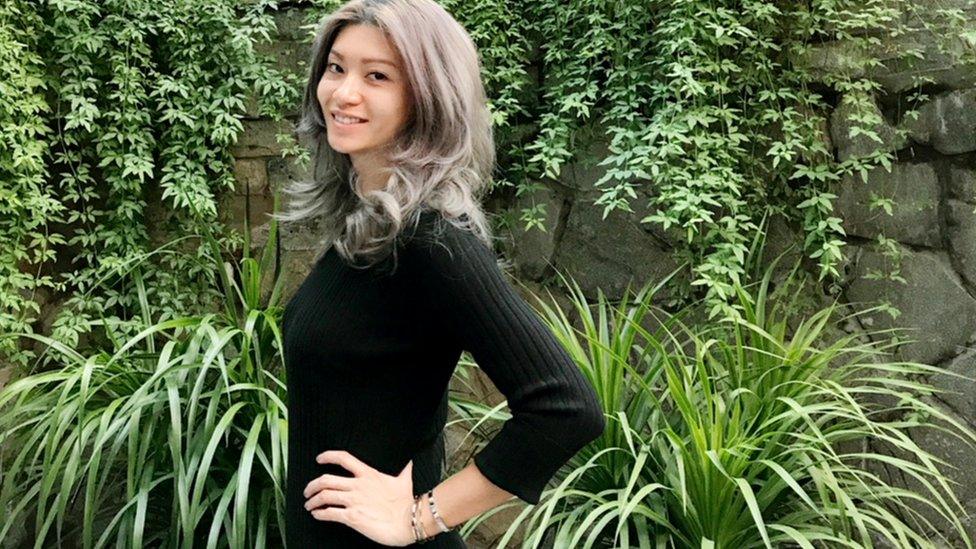
I am the only Emmeline that I know. My mother searched in a name book and it said "industrious and striving".
She said that she had heard of Emmeline Pankhurst - she didn't study her in the history syllabus but she knew she was an important person in history. I would have really loved to have learned about her - when I was younger I would search online to see if there were any other Emmelines out there and her name would come up first.
I think looking back now I would say that it did have an impact on me - I am fairly outspoken and I do seek fairness in certain situations.
There is a fine line between feminism and sexism - and in Asia those who aren't well versed with the term would relate it to a woman who was outspoken or demanding of more than they should. But it really is about having a voice in gender equality and creating a level playing field in terms of salary and equal opportunities.
That is what feminism is ultimately, so if you were to ask me if I was a feminist then yes I would say I am.
About 10 years ago I represented Malaysia for Miss World. I think these days it's a really good platform for women to speak out about the domestic issues in their country.
In recent years there have been more women speaking up about women's rights and providing platforms for abused women in bad relationships or domestic violence, but the problem at the moment is there are not enough shelters provided to help these people. It would be good if the government would step up and provide more funding.
There are more women-only facilities now - like women-only car parks closer to the entrance of shops, and they have train cabins that are women only. I think there should be more of it - you want to feel safe. It's a bit sad that it's necessary, but it's a good fix for now.
Emmeline Cooper, 42, London
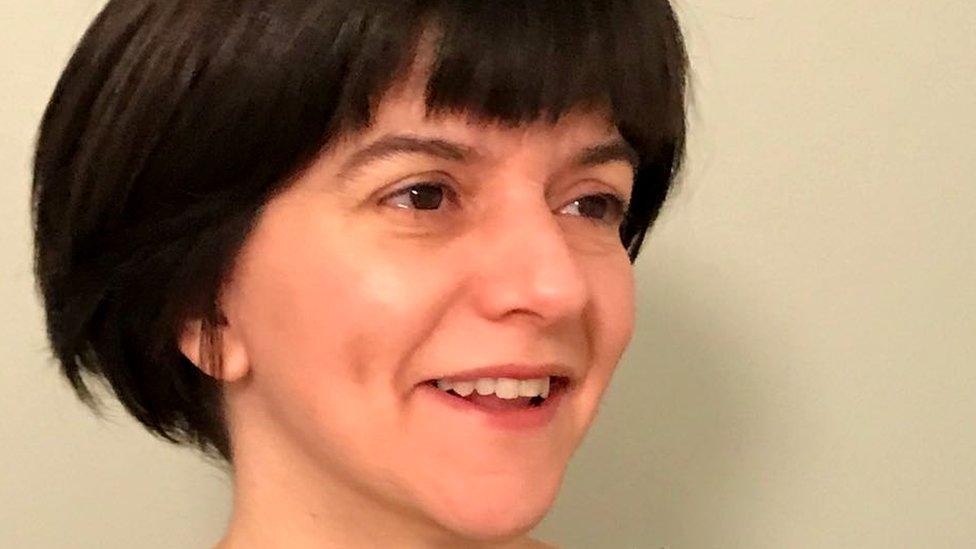
I don't think Emmeline Pankhurst was the only reason my mum named me Emmeline - she liked the name and she never raised me saying 'you're named after Emmeline Pankhurst', but she was very interested in the suffragettes and she would describe herself as a feminist, so I think it played a part.
People often say to me, 'That's a really beautiful name', and sometimes they'd say, 'Were you named after that Hot Chocolate song, external?' Very few people thought it might have been because of Pankhurst but I've always enjoyed that it gave me the opportunity for me to say, 'My mum's a feminist and was a fan of Pankhurst'. It was a start to a conversation about it.
When we were growing up in the 1990s [in the UK] there was less talk about feminism than there is now - my mum talked about these ideas in the home but outside the home they weren't talked about. I studied GCSE history and we studied that time - and the suffragettes just came up as a sentence or a paragraph in our notes in a two-year course. It really was just a sentence of history. To think it's only 100 years ago - it's extraordinary because as you get older your sense of time and history changes.
I would say I'm a feminist but I would like to not have to say that about myself. I want to be able to live in a world where I don't have to make that statement in order to get my rights.
I think it's an amazing time for women but I believe that people just have to keep having conversations with themselves and with their friends, partners, with their sons and daughters. The only way things really change is when everyone is included in these conversations.
It feels very media focused and that the media tends to polarise everything and that doesn't reflect in any way my own reality and my experience of talking to other people in my life. If you respect the opinions of others, people are also happy to listen to your point of view. It's these conversations that can help lead to change.
Emmeline Long, 21, Utrecht
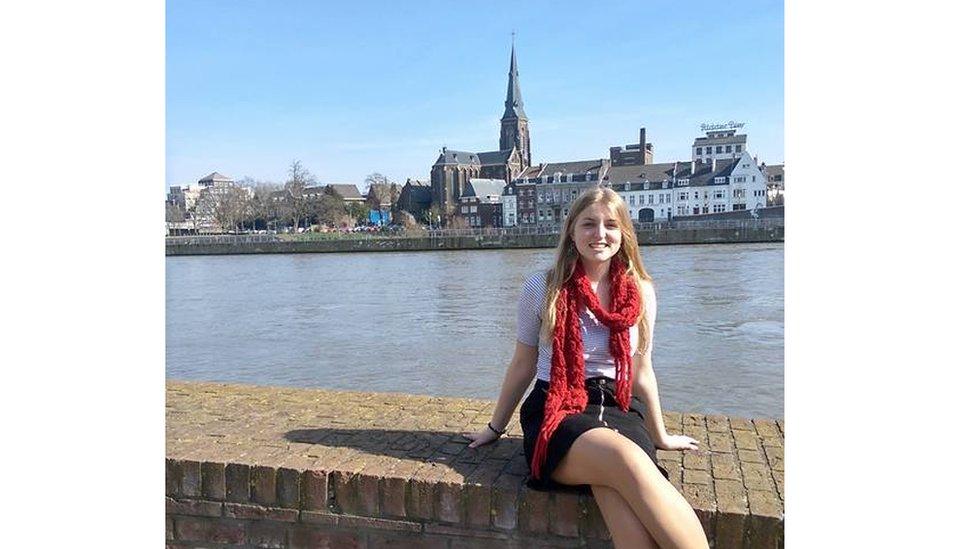
My mum's told me I was named after Emmeline Pankhurst and it's always been important to me - the equality of both genders - and I really feel that's part of my character.
I do feel there's a level of expectation to meet the fact I was named after her - especially when it comes to feminist issues. I feel it's important to stand up and talk about these things.
My mum talked about the difference between when she was younger compared to when I was young- the opportunities to go abroad, to take on different career options, the flexibility for women to participate in all these different career options, and I've always tried to take those opportunities.
But when I talk about Emmeline Pankhurst it's usually older generations (40-somethings onwards) who know who she is - I normally get blank faces from people younger than that.
Emmeline Lucena, 32, Sao Paulo
It is an unusual name here. The first choice was Larissa but my parents had a neighbour who had a daughter called Larissa and they didn't get on with each other so they decided to choose another name.
And then my dad read Emmeline by Judith Rossner. It's a really good book. It's about a little girl who needed to leave her home and move to Massachusetts when she was 13 years old, to help her parents survive financially.
It's kind of a sad story but she learned a lot about life really early on and the way that the author wrote it is really interesting.
My parents weren't aware of the link with Emmeline Pankhurst. They have never left Brazil. But I like the fact that I share her name.
I think it sounds like a strong name. Maybe I have been inspired by it. I left home at 21 and I live in Sao Paulo alone. I could develop my career far away from the family home and comfort zone.
And I am a volunteer in a group called Startup Weekend Women, external - we have more than 1,000 girls in this movement for women in tech - we help people transform ideas into business.
Feminism is growing in Brazil. Because the tech environment is very male that's my vision - we are getting strong about female inclusion and I think it's getting better.

You might also be interested in:
Read the full story: Suffragists or suffragettes - who won women the vote?

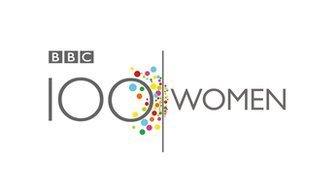
What is 100 women?
BBC 100 Women names 100 influential and inspirational women around the world every year and shares their stories. Find us on Facebook, external, Instagram, external and Twitter, external and use #100Women
Other stories you might like:
Egypt's first female Premier League footballer
